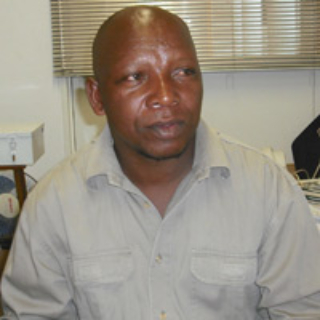THE DEPARTMENT OF ENVIRONMENTAL SCIENCE

Environmental education has been conceived as a process of recognising the value and various concepts of the environment. This is aimed at determining the skills and approaches necessary for understanding the relationship between the biophysical and human environments. The relationship between the environment and health cannot be over emphasised.
The programme has been designed to provide broad-based education for undergraduate students in the fields of environmental science. The field covers issues related to resource use, protection and enhancement of environmental quality. Given such a background, some of the departmental and programme objectives are to produce graduates who are able to:
- Provide professional advice on matters relating to the environment, environmental law and policy, public health and environmental health;
- Participate and provide leadership in the formulation of appropriate early warning systems of environmental change;
- Participate in environmental impact assessment and setting up of various systems such as environmental management, quality, occupational health and safety, food hygiene management and HACCP.
- Pursue postgraduate studies in environmental sciences, environmental health and public health
To contribute positively in community lives enhancement through environmental protection.
We are a world class reputable institution that is internationally recognised. Our department offers standardised curricula that is recognised the world over. We are sure that if you study with us we would help you carve your career prospects and become competitive for jobs and scholarships at Global Level. Students who have successfully gone through our curricula do not find it difficult to compete for jobs and scholarships worldwide.
Some of the training and consultancy services you will be able to carry out include:
- Participatory health and Hygiene Education (PHHE)
- Hazard analysis Critical Control Points (HCCP)
- Environmental I pact Assessments (EIAs.)
- Occupational Health and Safety Systems
- Environmental Management Audit
- Food Hygiene Management
- GIS and Remote Sensing
Our Programmes
Undergraduate
4 Years
480
540
408
8
Biology and any Science subject at A level
Special Entry:
Special Entry: NC, ND, and HND
Postgraduate
The project follows a Southern African Regional Universities Association (SARUA) capacity needs analysis in the SADC region that identified a gap related to climate change and development competencies at the Master’s level. Funded by the Climate & Development Knowledge Network (CDKN), the project forms part of the SARUA Curriculum Innovation Network. The curriculum aims to educate and train new generations of researchers, practitioners, and decision-makers in climate change and sustainable development in the Southern African region.
The approach is innovative and regionally focused, with a strong inter/ trans-disciplinary and integrated systems framing, to enable inclusive engagement with non-academic communities from different sectors relating to climate change and sustainable development in Africa. The graduate will have a broad knowledge of the field, with the capacity to self-specialize rapidly as needed.
Our Staff







